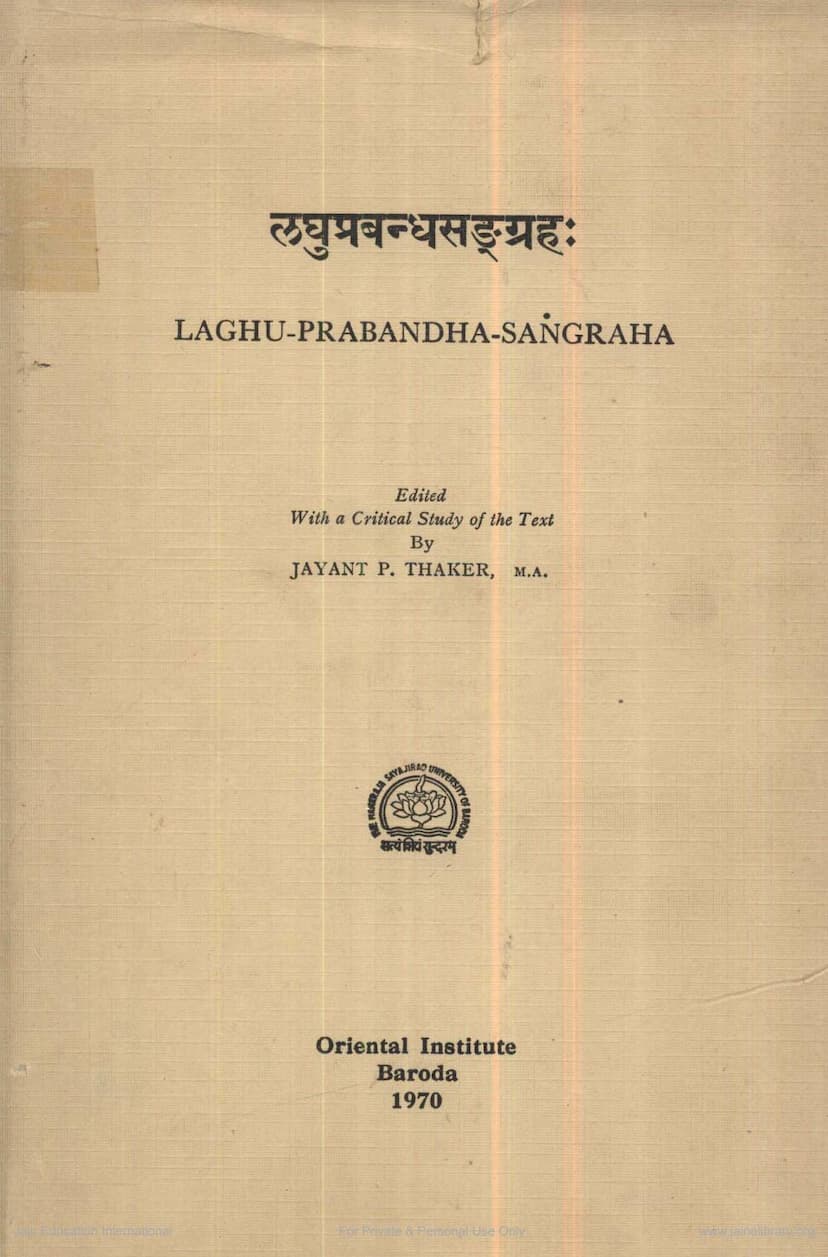Laghuprabandhsangrah
Added to library: September 2, 2025
Loading image...

Summary
The book "Laghu-prabandha-sangraha" edited by Jayant P. Thaker, published by Oriental Research Institute, Baroda in 1970, is a critical edition and study of a rare Jain text. The book contains ten "prabandhas" (narratives or anecdotes) attributed to a single anonymous author.
The text is significant for several reasons:
- Age and Uniqueness: The editor suggests that the version of the prabandhas in this text is the oldest known, making it a valuable contribution to Prabandha literature. Four of the ten prabandhas are unique and have not been found elsewhere.
- Linguistic Features: The work is written in "Jaina Sanskrit," a style characterized by a blend of Sanskrit, Prakrit, and Old Gujarati, reflecting the colloquial and regional language of medieval Western India. This linguistic mix makes it rich for lexicographical study, with many peculiar words, back-formations, and grammatical influences from regional dialects.
- Historical and Cultural Insights: The prabandhas offer considerable insights into the history and culture of medieval India, particularly Gujarat. They narrate stories of kings, ministers, merchants, and common people, touching upon social customs, religious practices, administration, and even daily life. While some events might be embellished or legendary, they provide valuable material for understanding the period.
- Comparative Study: The book includes a detailed comparative analysis of the prabandhas in LPS with versions found in other prominent Prabandha works like the Prabandha-cintamani and Prabandha-kośa. This comparison highlights the antiquity and distinctiveness of the LPS versions.
- Authorship and Date: While the author is anonymous, the consistent style and language suggest a single author from Gujarat, likely active in the latter half of the thirteenth century, between 1243 A.D. and 1305 A.D.
- Content: The ten prabandhas cover diverse themes, including:
- The story of Jagaddeva, a generous prince.
- The life of king Madanabhrama, known for his luxurious lifestyle and interaction with king Jayasimhadeva.
- The legend of Vikramaditya and the five-handled royal umbrella, detailing five desires fulfilled by the king.
- The construction of the Sahasralinga lake by king Jayasimhadeva based on a story narrated by a Vyasa.
- The story of Raulānis Siddhi and Buddhi and a minister's trick to prove the king's worthiness.
- The life of Namala, a florist queen, and her interactions with king Jayasimhadeva.
- The tale of the magicians Ganaya and Manaya, their magical feats, and their interactions with king Jayasimhadeva.
- The story of king Kumari Ranaka and a broken lake.
- The tale of king Ratnapuñja and his daughter Srimata, involving reincarnation and a monkey-faced princess.
- The narrative concerning Varddhamana suri and a dialectical contest at Sripattana.
The book includes extensive appendices providing a lexicographical study, an index of names, translations of verses, and a corrigenda, making it a comprehensive resource for scholars of Jainism, Sanskrit literature, and medieval Indian history and culture.